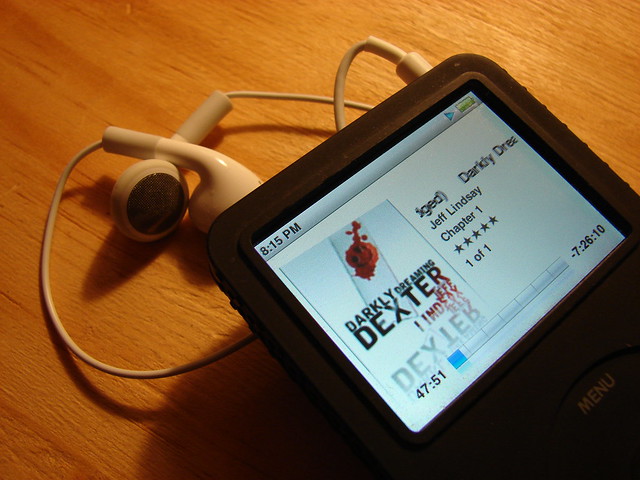 |
| Photo credit: rithban on Flickr |
that a certain best-selling series-turned blockbuster movies may have helped to kick it off, but every once in a while I see books employ sexy stalkers and I don’t really understand it.
Before I go any further, let me explain what I mean about “sexy stalker.”
A sexy stalker is a very attractive guy (or girl, hypothetically, though I haven’t seen this yet) who follows around/creeps on/knows way too much about/appears in bedrooms (or other private places)/aka STALKS the protagonist of the novel. Usually the protagonist is female and usually she doesn’t mind the stalking. Usually she falls in love with her stalker and so it’s all ok. Usually they end up in some kind of relationship and all of that strange behavior is chalked up to love and protectiveness.
It’s weird.
The thing I don’t understand, is that stalkers are a real thing. There are actually people out there who obsessively and inappropriately follow around and “research” an unfortunate victim of their so-called affection. There are actually cases of women and girls (and probably boys and men, too) who are afraid to go places or even be at home alone because of said harassment. There are restraining orders and police and courts involved and it’s not a pretty thing.
It’s also definitely not sexy.
Stalkers are scary. They make people actually fear for their lives. They make people too scared to go to school, or work, or whatever the case may be.
They don’t make people fall in love, and a relationship with a stalker isn't normal.
When I’ve seen it in books, I’ll admit that for the most part, I’ve ignored it. I’ve quirked my eyebrow at the weirdness and the protagonist’s blanket acceptance of stalkerish tendencies and moved on with the story.
But it still got me thinking. It still made me wonder why it’s ok for boys to be stalkers in books—no, why it’s sexy for boys to be stalkers in books. I’m wondering why our female protagonists are falling in love with boys who have borderline control issues and overprotective/obsessive tendencies.
I’m wondering what we’re telling kids when our protagonists have boyfriends who sneak into their bedrooms to watch them sleep at night, and follow them around when they’re out with their friends to presumably save them when they’re attacked.
Maybe it’s just me, but that kind of relationship just doesn’t seem healthy. Or sexy. Or in any way desirable.
But maybe it’s just me. Or maybe it’s not.
I want to hear from you: have you seen the sexy stalkers trend? Am I the only one who finds it strange?











